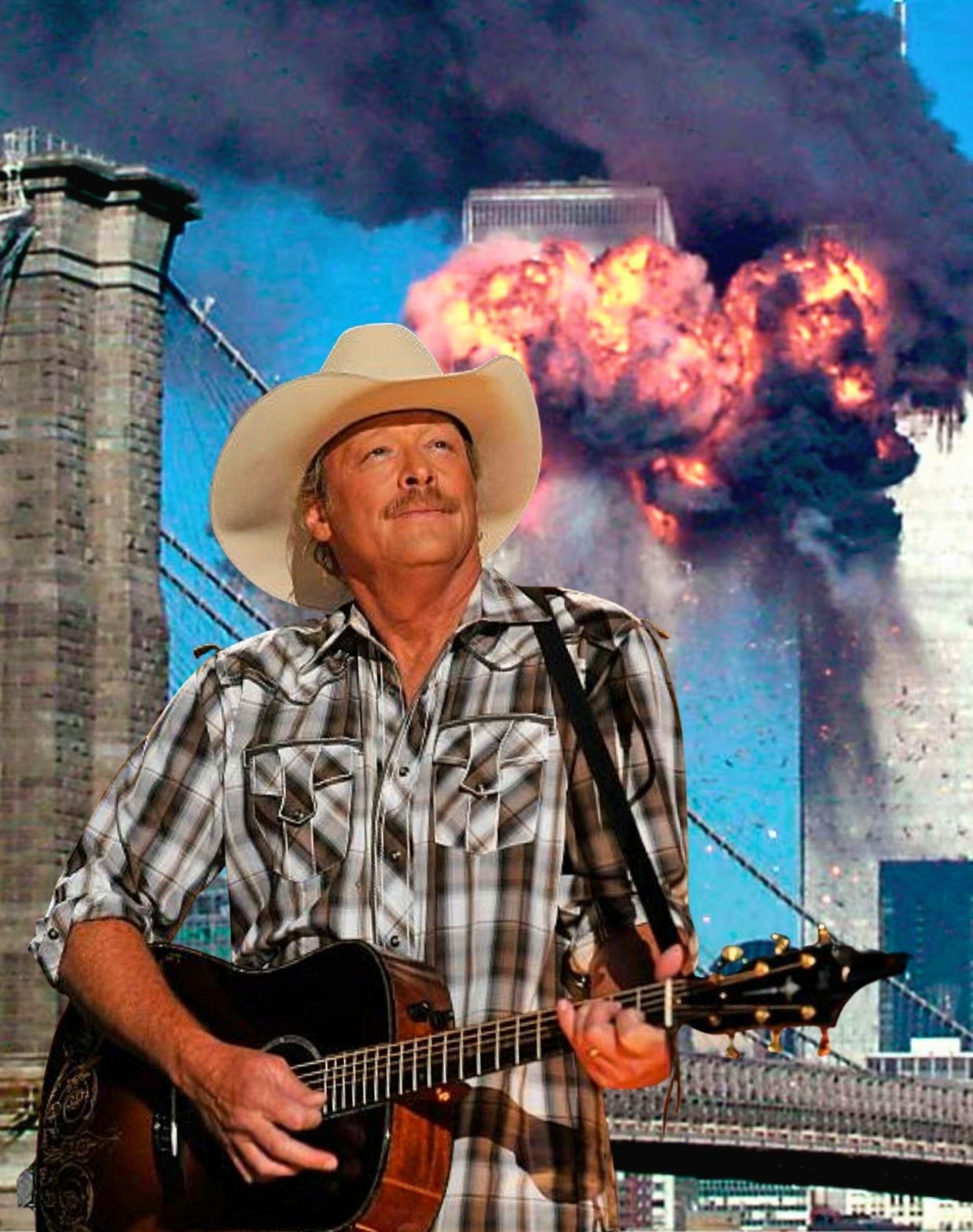WHERE WERE YOU: Alan Jackson’s Song of 9/11 Remembrance Still Heals a Nation, 24 Years Later
In the haunting days that followed the September 11th attacks, when America staggered beneath the weight of unspeakable loss, country music star Alan Jackson did the only thing he knew how to do: he wrote. In a quiet moment of prayer and reflection, he poured his grief, his questions, and his broken heart into a song that would forever be bound to that day: “Where Were You (When the World Stopped Turning).”
Alan has often said he never intended to write a political anthem or a history lesson. He simply tried to capture what so many ordinary people were feeling: sorrow, confusion, faith, and the desperate search for meaning when life’s certainties crumbled.
A Song Born of Silence
The words came softly, almost like a whisper. “Where were you when the world stopped turning, that September day?” In that single line, Alan gave voice to a nation’s pain — not with grand statements or answers, but with a question that met listeners where they were.
He wrote of watching children play, of holding loved ones closer, of turning to Scripture, and of realizing, with humility, that sometimes there are no answers — only faith. The simplicity of the lyrics was their power. They felt less like verses and more like pages from America’s collective diary.
When Alan first performed the song at the CMA Awards in November 2001, the auditorium fell silent. As his voice carried over the audience, many wept openly. By the final chorus, it was clear: this was not just a performance. It was a national prayer.
From One Man’s Heart to a Nation’s Hymn
The song quickly became more than a hit. It reached #1 on the charts, earned Alan Song of the Year and Single of the Year at both the CMA and ACM Awards, and later won the Grammy for Best Country Song. But beyond accolades, it became a balm.
For firefighters and first responders, for widows and children of the fallen, for soldiers deployed in the years that followed, Alan’s song was a companion. It was heard at memorials, candlelight vigils, and even funerals. Radio stations played it as if it were part of the liturgy of remembrance.
Alan later admitted he was stunned by the song’s impact. “I just wrote what was on my heart,” he said. “I never imagined it would touch people the way it did.”
Twenty-Four Years Later
Now, in 2025, the world still leans on Alan’s words. Each September, as the nation pauses to remember, the song resurfaces. Younger generations who were not alive on that devastating morning still discover it — and through it, they enter into the grief, the memory, and the hope of those who lived it.
In many ways, the song has outlived its moment to become timeless. It is not bound to the politics of 2001, nor to the years of war that followed. It speaks instead to the universal human experience of loss and longing, of faith in the face of sorrow.
The Question That Remains
“Where were you when the world stopped turning?” The question lingers, not as accusation but as memory. Every American who lived through 9/11 carries an answer. Some were at work, staring at televisions in disbelief. Some were in classrooms, clutching textbooks as teachers wept. Some were thousands of miles away but felt their hearts pulled to New York, Washington, and Pennsylvania as if by invisible thread.
Alan’s song does not demand those stories. It simply gives them a home.
The Enduring Legacy of a Simple Song
Alan Jackson never intended to be the nation’s voice of grief. He is, at his heart, a humble man from Georgia who sings of love, family, and everyday life. But on that September morning — and in the song that followed — he gave America a place to grieve together.
Twenty-four years later, his words still remind us: it is not in politics or power that we find healing, but in faith, in love, and in remembering.
On this anniversary, as the bells toll and the names of the lost are read, Alan’s song still carries across the years like a prayer: simple, unpolished, but eternal.
Because long after the dust has settled and the memorial lights have dimmed, the question still stands:
Where were you when the world stopped turning?
